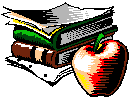 Rethinking
The Academy:
Rethinking
The Academy: Rethinking
The Academy:
Rethinking
The Academy:We live in a time in which the very ways in which we make knowledge and pass that knowledge on to others is shifting and changing; roles and identities of knowledge makers move into flux as students teach teachers, teachers learn from students, and students learn from and teach one another. Indeed, some teachers are giving students control over the content of courses they teach, an inversion of traditional roles that is beginning to revitalize teaching.
The existence of the computer, a device which can increase the ability of its user to manipulate text, and the existence of networks which can link those devices and thus speed the transmission and modification of text through collaborative means, allow, if not force, the academy and those who work within its spheres to rethink how we teach, how we make scholarship and even what the role and purpose of the academy will be in the next millennium.
While computers and technology are not inherently necessary as a means of changing the roles of student and teacher, they certainly can increase the speed at which these changes occur, especially since students are often far more used to working in electronic environments than instructors may be.
Indeed, the grassroots nature of these changes may end up being far more significant to the structure of the academy than will the technologies themselves as undergraduate students, graduate teaching assistants, junior faculty, and staff members begin to demand and receive access to various hardware and software systems. These may include Pentium machines, modems and direct connections to university systems, up to date word processing programs, messaging systems, browsers, LANs, Internet and intranet connections, on-line library research capabilities like those available through the Main Library Home Page at the University of Illinois at Chicago , and virtual classes and training held entirely or primarily in cyberspace. In the case of faculty and staff, credit towards tenure and promotion for creation of new courses and for teaching and research loads carried out in electronic environments will also become an increasingly important and perhaps tendentious issue.
In "Rethinking the Academy," I'd like to examine the problems and possibilities inherent in the present situation of the academy as it exists in a web of social, political, technological, and legal forces that are mostly beyond its own control with a special emphasis and attention to scholarship and teaching, and contrast that with the problems and possibilities that are increasingly evident as growing numbers of teachers and students begin to experiment with ways of learning and the creation of knowledge in cyberspace.
Last Modified: September 2, 1996
Copyright © 1996 by Keith Dorwick